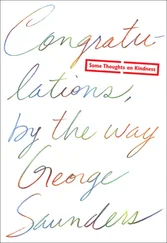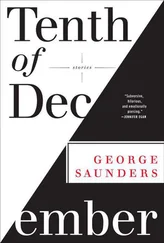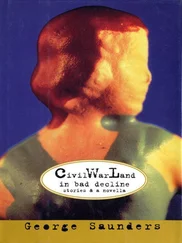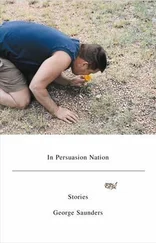Ancient Mariner — style, my seatmate, a Kosovar, tells me about a Serbian paramilitary group called the Black Hand that left a childhood friend of his on a hillside, “cut into tiny pieces.” During the occupation, he says, the Serbs often killed babies in front of their parents. He is kindly, polite, awed by the horrible things he’s seen, grateful that, as an American citizen, he no longer has to worry about murdered babies or hacked-up friends, except, it would appear, in memory, constantly.
Story told, he goes off to sleep.
But I can’t. I’m too uncomfortable. I’m mad at myself for eating two roolz during the last Round of Roolz, roolz that seem to have instantaneously made my pants tighter. I’ve already read all my books and magazines, already stood looking out the little window in the flight-attendant area, already complimented a severe blond flight attendant on Austrian Airlines’ excellent service, which elicited an oddly Austrian reaction: She immediately seemed to find me reprehensible and weak.
On the bright side, only six more hours on this plane, then two hours in the Vienna airport and an eight-hour flight to Katmandu.
I decide to close my eyes and sit motionless, to make the time pass.
Somebody slides up their window shade and, feeling the change in light on my eyelids, I am filled with sudden curiosity: Has the shade really been lifted? By someone? Gosh, who was it? What did they look like? What were they trying to accomplish by lifting the shade? I badly want to open my eyes and confirm that a shade has indeed been lifted, by someone, for some purpose. Then I notice a sore patch on the tip of my tongue and feel a strong desire to interrupt my experiment to record the interesting sore-tongue observation in my notebook. Then I begin having Restless Leg Syndrome, Restless Arm Syndrome, and even a little Restless Neck Syndrome. Gosh, am I thirsty. Boy, is my breath going to be bad when this stupid experiment is over. I imagine a waterfall of minty water flowing into my mouth, a waterfall that does not have to be requested via the stern flight attendant but just comes on automatically when I press a button on the overhead console marked Minty Water.
The mind is a machine that is constantly asking: What would I prefer? Close your eyes, refuse to move, and watch what your mind does. What it does is become discontent with That Which Is. A desire arises, you satisfy that desire, and another arises in its place. This wanting and rewanting is an endless cycle for which, turns out, there is already a name: samsara. Samsara is at the heart of the vast human carnival: greed, neurosis, mad ambition, adultery, crimes of passion, the hacking to death of a terrified man on a hillside in the name of A More Pure And Thus Perfect Nation — and all of this takes place because we believe we will be made happy once our desires have been satisfied.
I know this. But still I’m full of desire. I want my legs to stop hurting. I want something to drink. I even kind of want another hot roll.
Seven months, I think? The kid has been sitting there seven months ?
FORSOOTH, GET ME HITHER TO THE PALACE, AND DON’T SMACK INTO THAT COW
We arrive in Katmandu just before midnight. The city is as dark a city as I’ve ever seen: no streetlights, no neon, each building lit by one or two small bulbs or a single hanging lantern. It’s like a medieval city, smoke-smelling, the buildings leaning into narrow unsquared roads. It’s as if the cab has been time-transported back to the age of kings and squalor, and we are making our way through the squalor to the palace, which is the Hyatt. A garbage-eating cow appears in our headlights. We pass a lonely green-lit mod ATM kiosk that looks like it’s been dropped in from the future.
The Hyatt lobby is empty except for rows of Buddha statues: a maze with no takers. The Business Center manageress not only has heard of the boy but is also of the opinion that he is being fed by snakes. Their venom, she says, is actually milk to him.
I go to bed, sleep the odd post-trip sleep from which you wake up unsure of where, or who, you are.
In the morning I throw open the curtains, and there is Katmandu: a sprawling Seussian city where prayer flags extend from wacky tower to strange veranda to tilting spire-of-uncertain-purpose. Beyond Seuss City: the Himalayas, pure, Platonically white, the white there was before other colors were invented. In the foreground is the massive, drained, under-repair Hyatt pool, in a field of dead, dry Hyatt grass, and a woman tending to the first of an endless row of shrubs, in a vignette that should be titled “Patience Will Prevail.”
I take a walk.
The level of noise, energy, and squalor of Katmandu makes even the poorest section of the most wild-ass American city seem placid and urban-planned. Some guys squat in a trash-strewn field, inexplicably beating the crap out of what looks like purple cotton candy. A woman whose face has been burned or torn off walks past me, running some small errand, an errand made heartbreaking by the way she carries herself, which seems to signify: I’m sure this will be a very good day! Here is a former Pepsi kiosk, now barbed-wired and manned by Nepalese soldiers armed for Maoists; here a Ping-Pong table made of slate, with brick legs. I cross a mythical bleak vacant lot I’ve seen in dreams, a lot surrounded by odd Nepali brick high-rises like a lake surrounded by cliffs, if the lake were dry and had a squatting, peeing lady in the middle of it. Averting my eyes, I see another woman, with a baby, and teeth that jut, terrifyingly, straight out of her mouth, horizontally, as if her gums had loosened up and she had tilted her teeth out at ninety degrees. She stretches out a hand, jiggles the baby with the other, as if to say: This baby, these teeth, come on, how are we supposed to live?
Off to one side of the road is a strange sunken hollow — like a shallow basement excavation — filled with rows of wooden benches on which hundreds of the dustiest men, women, and children imaginable wait for something with the sad patience of animals. It’s like a bus station, but there’s no road in sight. Several Westerners huddle near a gate, harried-looking, pissy, admitting people or not. A blind man is expelled from the lot and lingers by the gate, acting casual, like he was not just expelled. What’s going on here? Three hundred people in a kind of open-air jail, no blind guys allowed.
I go in, walk through the crowd (“Good mahning how on you I am fahn!”), and corner a harried Western woman with several mouth sores.
“What is all this?” I say.
“Soup kitchen,” she says.
“For…?” I say.
“Anybody who needs,” she says.
And there are many who need: two hundred, three hundred people a sitting, she says, two sittings a day, never an empty seat.
This, I think, explains the expelled blind man: He came too late.
Life is suffering, the Buddha said, by which he did not mean Every moment of life is unbearable but rather All happiness/rest/contentment is transient; all appearances of permanence are illusory.
The faceless woman, the odd-toothed woman, the dusty elderly people with babies in their laps, waiting for a meal, the blind guy by the gate, feigning indifference: In Nepal, it occurs to me, life is suffering, nothing esoteric about it.
Then, at the end of a road too narrow for a car, appears the famous Boudha stupa: huge, pale, glacial, rising out of the surrounding dusty squalor like Hope itself.
WHAT IS A STUPA AND WHY DO WE NEED ONE?
A stupa is a huge three-dimensional Buddhist prayer aid, usually dome-shaped, often containing some holy relic, a bone or lock of hair from the historical Buddha. This particular stupa has been accreting for many centuries; some accounts date it back to AD 500. It is ringed by a circular street filled with hundreds of circumambulating Buddhist pilgrims from all over Nepal, Tibet, Bhutan, India: wild costumes in every hue of purple, red, and orange; odd piercings and hairstyles. A shop blares a version of the om mani padme hung chant over and over, all day. A woman with a goiter the size of a bowling ball gossips with some friends.
Читать дальше












